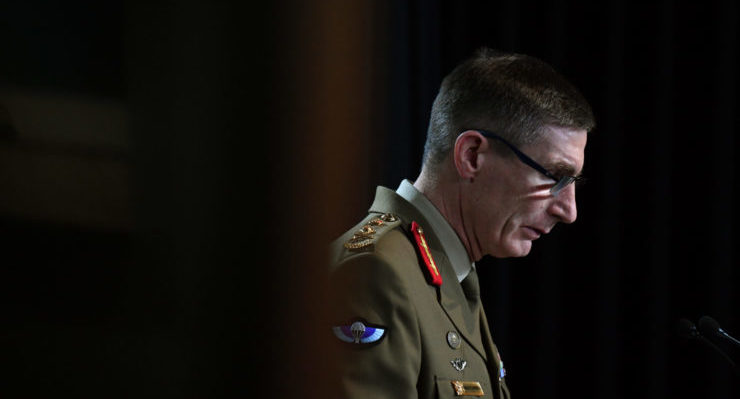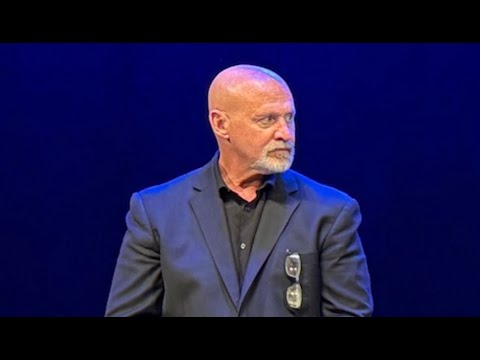Good morning, early birds. Report into Australian war crimes in Afghanistan found “credible information to substantiate 23 incidents of alleged unlawful killing of 39 people by 25 Australian Special Forces personnel”, and has prompted a number of major responses. It’s the news you need to know, with Chris Woods.
BOMBSHELL REPORT
The Chief of the Australian Defence Force, Angus Campbell, yesterday announced that Major General Justice Paul Brereton’s final, heavily-redacted report into Australian war crimes in Afghanistan found “credible information to substantiate 23 incidents of alleged unlawful killing of 39 people by 25 Australian Special Forces personnel, predominantly from the Special Air Service Regiment”.
As The Mandarin explains, the report also discloses separate allegations that ADF members “cruelly treated” people who were under their control and not classified as existing combatants during periods of time outside “the heat of battle”.
Two of the more horrific, systemic findings involved soldiers carrying “throwdowns” — foreign weapons or equipment such as pistols, hand-held radios and grenades — “to be placed with the bodies of ‘enemy killed in action’ for the purposes of site exploitation photography”, and what Campbell calls an “appalling practice known as blooding” where soldiers were instructed to shoot a prisoner in order to achieve their first kill.
Brereton investigated 57 allegations and made 143 recommendations in his report — including for the referral of 36 incidents to the Australian Federal Police and compensation of victims’ families — all of which have been accepted.
For anyone seeking help, Lifeline is on 13 11 14, Open Arms Veterans & Families Counselling is on 1800 011 046, and the ADF All-hours Support Line is on 1800 628 036.
REFORM, SADNESS, AND OUTRAGE
The release of Brereton’s war crimes report has seen a number of major responses, including but not limited to:
- The disbanding of the Special Air Service Regiment’s second squadron — following findings of that its “warrior-hero” culture contributed to unlawful killing — and both potential prosecution and stripping of medals from soldiers involved in the alleged killings, some of whom are still serving (The Age)
- This comes on top of previously announced reforms such as a new Office of the Special Investigator to investigate and prosecute matters raised in the inquiry, as well as an independent oversight panel for Defence’s broader response
- An unreserved apology from Campbell, and news that Defence is exploring how it can arrange compensation to families (The Guardian)
- Prior to the report’s release, Afghanistan’s President Ashraf Ghani released a statement saying Scott Morrison had called to express “his deepest sorrow over the misconduct by some Australian troops” (ABC)
- Abdul Latif, whose father Haji Sardar was allegedly executed by an SAS soldier in March 2012, welcomed the release of the report, calling it “a step towards justice”. A small number of other whistleblowers have said while the report has taken a long time, they have greeted it with relief tainted with sadness (The Sydney Morning Herald)
- Renewed calls from the legal team for whistleblower and former military lawyer David McBride, who is still facing prosecution for charges including “theft of Commonwealth property” and the “unauthorised disclosure of material to journalists”, to have these charges dropped; McBride leaked documents about the killing of unarmed civilians to the ABC for the 2017 story, “The Afghan Files”, sparking the AFP’s infamous 2019 raids (The Canberra Times).
BORDER ORDERS
Victoria has implemented a 48-hour hard border to South Australia starting from midnight last night, with the ABC noting that all truck drivers entering from the state will be asked to be tested.
The news comes after South Australia recorded no new cases yesterday but Premier Steven Marshall warned “potentially thousands” of people visited a “site of concern”.
Meanwhile, 7News reports that COVID-19 fragments were found in wastewater in regional Victorian cities Benalla and Portland, even as Victoria recorded its 20th day of zero cases and deaths.
In a welcome if belated acknowledgement of the risks of using casualised labour for high-risk work, the ABC reports that Victoria’s new hotel quarantine program will directly employ staff and do advance contact tracing.
A KOALAFIED STATEMENT
Finally, the ABC reports that the NSW government made the snap decision yesterday to dump the koala protection bill that threatened to blow up the state Coalition.
The decision was made after Liberal MP Catherine Cusack crossed the floor to vote with Labor, the Greens, the Animal Justice Party, and Independent Justin Field and successfully send the bill to a parliamentary inquiry.
Apparently, rather than suffer that ignominy, the Berejiklian government has just dropped the bill altogether. Which is a win for Nationals Leader John Barilaro, and a loss for koalas who, with no new protections, are now still on track to be extinct in the state by 2050.
THEY REALLY SAID THAT?
It would be a tragedy if Australians were to see our nation’s involvement in Afghanistan solely through the prism of these allegations.
Richard Marles
While acknowledging that allegations in the Brereton report are “simply appalling”, the Deputy Labor Leader spends roughly one third of his response justifying Australia’s invasion of Afghanistan.
READ ALL ABOUT IT
Australia’s unemployment rate hits 7% despite some lockdowns easing
Morrison government set to release Retirement Income Review
‘Why keep silent?’: China to target Australia’s human rights record
Bourke Street attack aided by ‘perfect storm’ of police deficiencies, coroner finds
Morrison sets end of year goal to target IR and greenhouse emissions
Experts rubbish SA coronavirus ‘super strain’ claims
Frydenberg declares war on corporate regulator in a bid to reduce powers
Oxford-AstraZeneca vaccine shows promise in elderly, trial results by Christmas
Senior Biden adviser set for key role has ties to oil and gas, climate activists warn
THE COMMENTARIAT
‘Rock-star hubris’ and a warrior culture. What went wrong in Afghanistan? — Chris Masters and Nick McKenzie (The Sydney Morning Herald): “Even to insiders the numbers came as the biggest surprise: Twenty three incidents in which one or more non-combatants were unlawfully killed, 39 individual Afghan victims of what were effectively summary executions as distinct from “heat of battle” misjudgments. And a total of 25 current or former defence personnel as perpetrators, with 19 individuals referred to the Australian Federal Police for prospective prosecution.”
War crimes report: Vital light must not cast a shadow ($) — Amanda Hodge (The Australian): “There are wars that end in clear victory or defeat and then there is Australia’s experience in Afghanistan, the so-called graveyard of empires, though in reality more a nation of weary warriors caught in an almost endless loop of bitter conflicts.”
Pompeo’s West Bank trip would be unthinkable for any other US Secretary of State. But not him — Oren Liebermann, Jennifer Hansler and Kylie Atwood (CNN): “Secretary of State Mike Pompeo’s visit to Psagot on Thursday marked the first time a top American diplomat has visited a settlement in the West Bank, considered illegal under international law. For any other Secretary of State, this move would have been unprecedented, breaking with decades of US foreign policy and ignoring UN Security Council resolutions.”
HOLD THE FRONT PAGE




WHAT’S ON TODAY
Australia
-
Scott Morrison will today address the Business Council of Australia and then, over this weekend, attend virtual sessions of the APEC Economic Leaders’ Meeting.




A lot can happen in 3 months.
3 months is a long time in 2020. Join us to make sense of it all.
Get you first 12 weeks of Crikey for just $12. Cancel anytime.
Peter Fray
Editor-in-chief of Crikey








